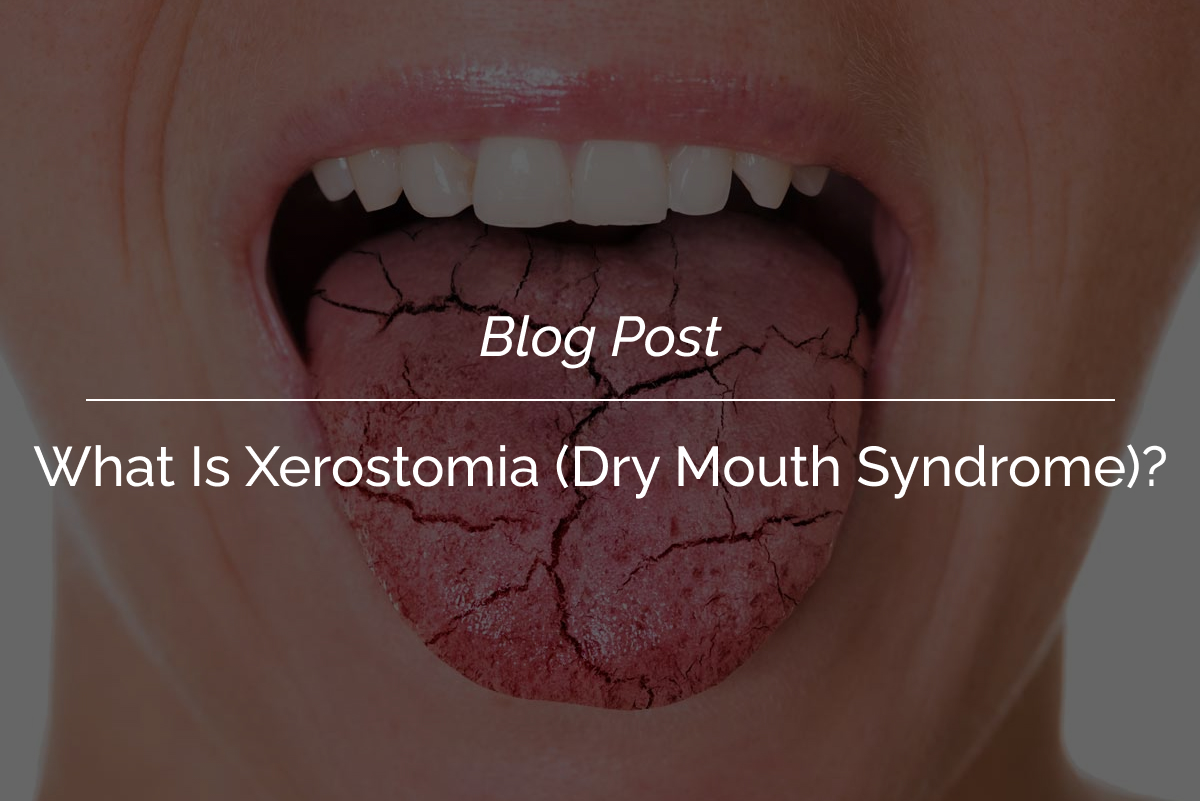Xerostomia or dry mouth syndrome is a common condition associated with salivary gland hypofunction, that is, the salivary glands in your mouth don’t make enough saliva to keep your mouth wet. Saliva helps prevent tooth decay by neutralising acids produced by bacteria, limiting bacterial growth and washing away food particles. Saliva also enhances your ability to taste and makes it easier to chew, swallow and digest food. Many people experience dry mouth at night but it can also occur at other times.
Decreased saliva and dry mouth can range from being merely a nuisance to something that has a major impact on your general health and oral health, as well as your appetite and enjoyment of food. Reduced salivary flow can cause difficulties in tasting, chewing, swallowing, and speaking. It can also increase the chance of developing tooth decay, demineralisation of teeth, tooth sensitivity, and/or oral infections.
Symptoms of Xerostomia
If you’re not producing enough saliva, you may notice these signs and symptoms all or most of the time:
- Dryness or a feeling of stickiness in your mouth
- Saliva that seems thick and stringy
- Bad breath
- Difficulty chewing, speaking and swallowing
- Dry or sore throat and hoarseness
- Dry or grooved tongue
- A changed sense of taste
- Problems wearing dentures
In addition, dry mouth syndrome may result in lipstick sticking to the teeth
Dry Mouth Causes
There are a variety of potential causes of xerostomia, including aging, inadequate nutrition, adverse side effects of medication, toxicity of chemotherapy and/or radiation therapy of the head and neck, autoimmune disease, other chronic disease, and nerve damage. Patients can be variably affected.
Less often, dry mouth may be caused by a condition that directly affects the salivary glands. Drinking alcohol and smoking or chewing tobacco can also increase dry mouth symptoms. Methamphetamine use can cause severe dry mouth and damage to teeth in a condition also known as “meth mouth”. Marijuana also can cause dry mouth.
Dry Mouth Treatment
To determine the cause of your dry mouth requires reviewing your medical history and all medications you’re taking, including over-the-counter medications, and examining your mouth. Dry mouth treatment will vary depending on the dry mouth causes, but may involve:
- Changing medications that cause dry mouth
- Prescribe medication that stimulates saliva
- Recommend products to moisturise your mouth which can include mouth rinses, artificial saliva or moisturisers to lubricate your mouth. Mouthwashes designed for dry mouth, especially ones with xylitol, can be effective, such as Biotene Dry Mouth Oral Rinse or Act Dry Mouth Mouthwash, which also offer protection against tooth decay.
To prevent cavities, your dentist may fit you for fluoride trays, which you wear over your teeth to prevent the impact of dry mouth at night. Your dentist may also recommend weekly use of a chlorhexidine rinse to control cavities.
Book a Consultation Today at King Street Dental
Booking regular dental appointments is another key factor in maintaining good dental health. At King Street Dental, we offer quality general and specialised dental care services in Templestowe. This includes everything from regular check-ups to procedures to remove painful wisdom teeth. Whether you’re after professional teeth whitening or dental implants, you can count on our friendly dental experts.
Book an appointment today by calling 03 9841 8033 or contact us online.
